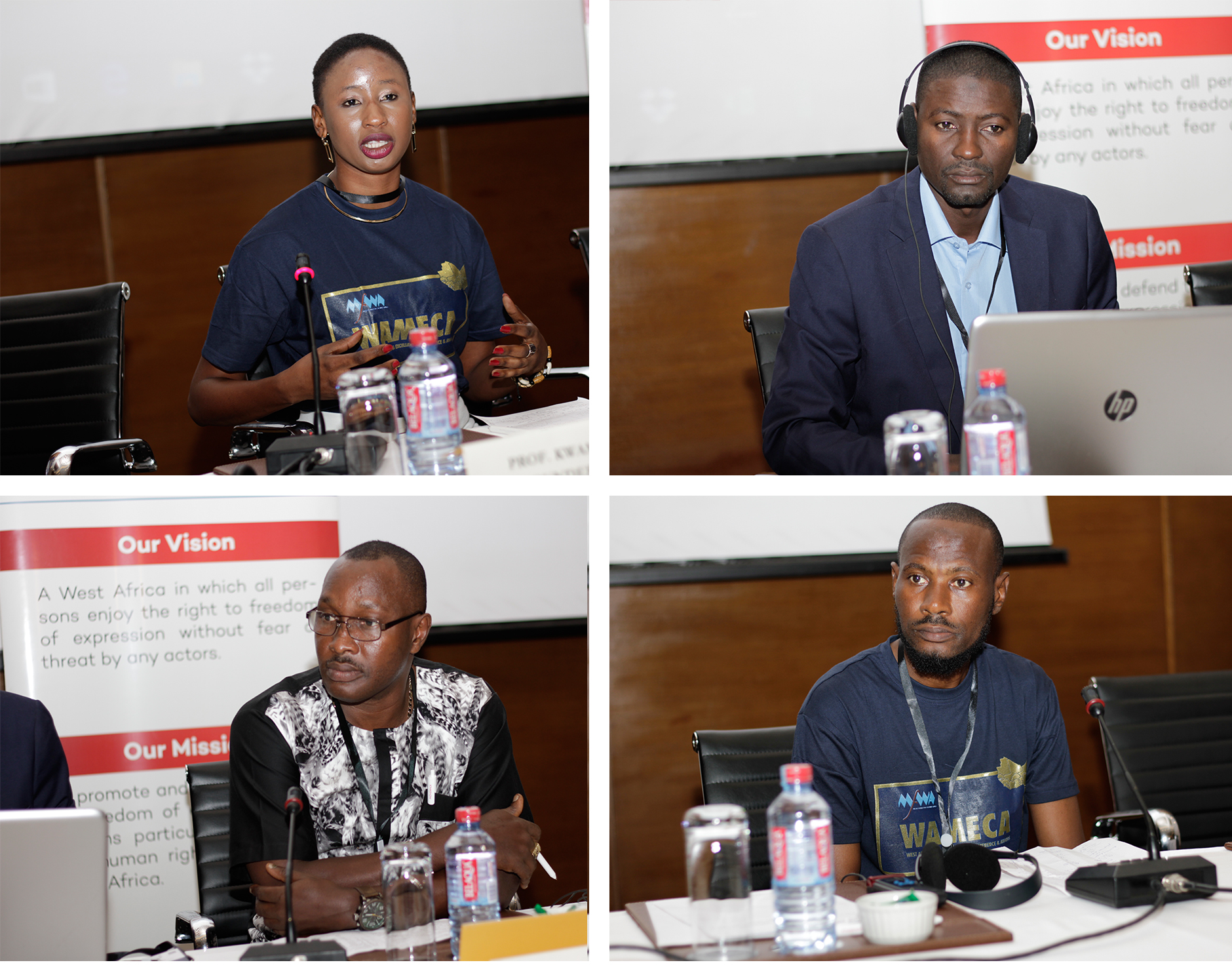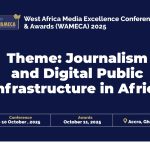
West Africa’s leading press freedom organisations have urged governments in the sub-region to take urgent steps to stem the rising tide of impunity for crimes against journalists.
They expressed worry that with three months to close the year, 115 freedom of expression violations already been recorded in the sub-region, with less than 5 percent redressed. They observed that given the indispensable role of the media in promoting human rights and democracy and accountability, it is imperative for governments in the sub-region to prioritise the fight against impunity for freedom of expression violations, and attacks against journalists in particular.
The concerns were raised during a panel discussion at the maiden West Africa Media Excellence Conference and Awards (WAMECA) hosted by the Media Foundation for West Africa (MFWA) in Accra on October 27-28, 2017.
The session on Safety of Journalists and Countering Impunity, which was sponsored by the Toronto-based global press freedom network, IFEX, highlighted the challenges to press freedom with particular emphasis on how stakeholders could collaborate more effectively to fight impunity.
Discussants included government officials, representatives from media regulatory bodies, the media and press freedom organisations across West Africa.
A Programme Officer at the MFWA, Muheeb Saeed, stated that the MFWA recorded 115 freedom of expression rights violations, from January – September 2017. He said monitoring reports show that security agents were responsible for over half of the violations recorded during the period. He added that less than five percent of these violations have been redressed, highlighting the extent of impunity for crimes against journalists in the sub-region.
The Secretary General of Niger’s auto-regulatory body, ONIMED, Maman Jaharou, expressed concern that some governments now look into the private lives of critical journalists in search of acts of indiscretion which they (the governments) use for blackmail purposes. He therefore advised journalists to be on their guard at all times.

In The Gambia, Haddija Jawara of the Gambia Press Union (GPU), said her organisation has planned a series workshops to give the security agencies in the Gambia a new orientation to protect journalists from physical attacks.. She said the GPU was challenging the constitutionality of Gambia’s restrictive press laws, particularly with regard to sedition, false publication and criminal defamation.

Gambia’s Minister of Information, Demba Ali Jawo, who was also the Special Guest, said that his government has planned to heal the wounds of the Yahyah Jammeh dictatorship by establishing a Truth and Reconciliation Commission.

“As far as impunity is concerned, a lot of things happened during the past regime, and what the government has planned to do is to set up a truth and reconciliation commission which will encourage both the victims and the alleged perpetrators of those wrongs to come forward , speak their minds about what happened and then we reconcile the country,” the minister revealed.
Honourable Demba Jawo added however, that those responsible for gross abuses would be prosecuted.
“I can assure, however, that it is not going to be a blanket amnesty for everybody. Those who bear greater responsibility for some of the crimes that have been committed will definitely have their day in court”, the minister emphasised.
Participants resolved to improve the press freedom environment in West Africa through a sustained and collaborative fight against impunity.
The media excellence conference was followed by an awards ceremony that saw six journalists from three countries in West Africa being honoured for quality and impact-making journalism.






